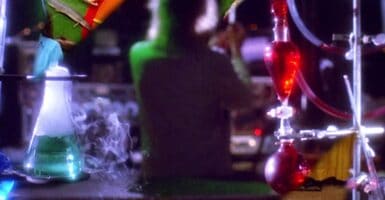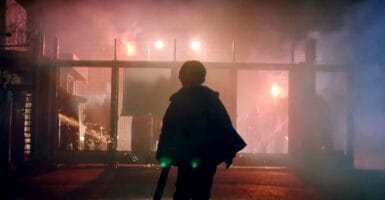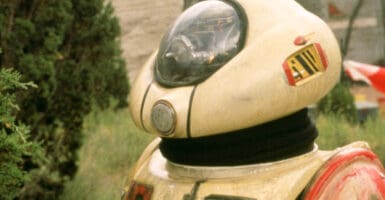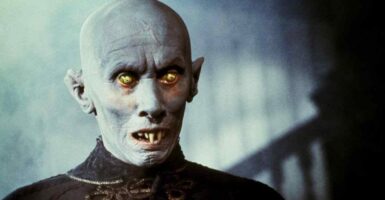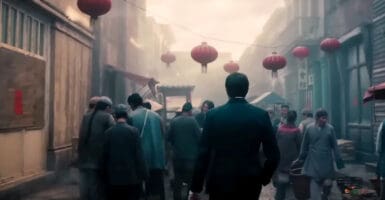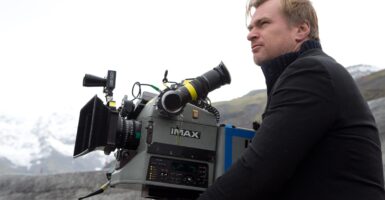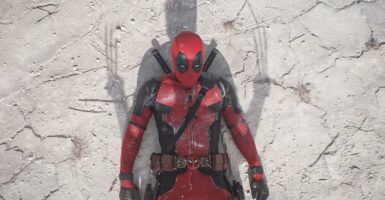Movie Review: The Host Is A Dull Invasion
This article is more than 2 years old
What is there to say about Andrew Niccol’s The Host? The film adaptation of Stephenie Meyer’s best-selling novel of the same name is positioned to be as successful as the Twilight film series, which the author also wrote and produced. While The Host sports an all-star cast featuring Saoirse Ronan (Hanna), Diane Kruger (Inglourious Basterds), and William Hurt (A History of Violence), it suffers from self-seriousness, a lack of personality or humor, and bland tonal trappings that make Twilight look like The Avengers, in terms of excitement and thrills.
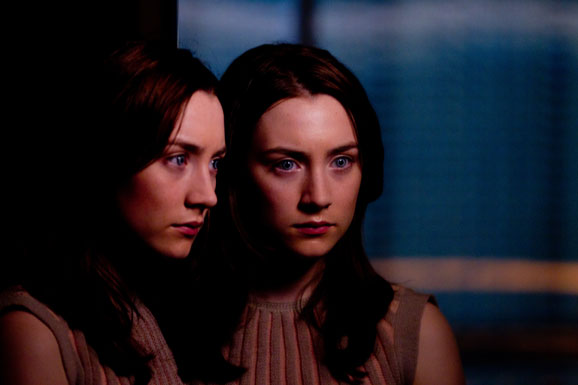
The film is set in the distant future, after an alien race traveled millions of light years to invade Earth and enslave its entire human race. The aliens, referred in the film as “Souls,” are parasitic and attach to their host non-violently, taking away their memories and freewill.
The start of the film promises to give audiences a taste of the action, but somehow it never really adds up to anything more than a bumbling game of tag. Saorirse Ronan’s Melanie Stryder is trapped in a building while “Seekers” hunt her down. While the seekers do very little to force her to become a host, they politely ask her to come along with them so they can give her the “treatment” to make her a better person. She responds, “Like hell,” clumsily runs through the corridors, and eventually jumps out of a ninth-story window to her presumed death. But she survives the fall and the seekers deliver her new “Soul” immediately.
The Host is perfectly summed up in this scene. It’s dull and docile, and when confronted by conflict or drama, it runs away from action and thoughtlessly jumps to its death. Unfortunately, the film doesn’t end there. It goes on for another two hours as Melanie Stryder fights her body’s new visitor, called “Wanderer.” There’s literally an internal conflict within her, which is really the only (somewhat) interesting thing to watch in the film. Saorirse Ronan is fantastic in the film, but her motivations and dialogue are as clumsy as the film’s opening scene and preceding structure.
While the film was adapted from a best-selling novel, that doesn’t mean it has to follow the same structure as its source material. The problem with The Host is its lack of cinematic oomph. The film feels like a novel, exchanging chapter titles with scene numbers. Point A will get you to Point B, while Point C waits; this makes The Host feel extremely uneven and unnecessary as most of the film feels like padding and a way to placate its fans. It is just overlong and tedious, and while it may seem dynamic to illustrate inner conflict in a book, it doesn’t translate to cinema. It just comes off as banal. Why “hide” Melanie as a voiceover instead of having Wanderer (now shortened to Wanda) interact with a doppelganger or new image of her host? A movie can open up a story, but writer/director Andrew Niccol decided to bury visuals beneath perfunctory words and world building.
Andrew Niccol rose to stardom in the ’90s with the film Gattaca, starring Ethan Hawke and Uma Thurman, and by writing the film The Truman Show for director Peter Weir. His career in the 2000s was middling, with offerings like Lord of War and In Time, but his films continue to carry a bit of interest for science fiction genre fans. The Host is not a return to form, but rather an example of a once-promising director not fulfilling the promise of his early talents.
Nothing can really be said about the film’s villain, conflict, or alien species because it all seems surface level without the clear motivations or conceptions to make anything in The Host interesting. The Host will make you long for the nuances of The Twilight Saga.
![]()
